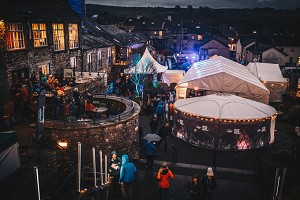
In this interview Jack Geldard talks to UKC's very own Natalie Berry, and asks her about the last two years of her climbing - which have been followed and made in to a film by Hotaches Productions. 'Transition' is Natalie's story of moving on from indoor and sport climbing and seeing how she fares on the crags and winter climbs of Scotland.
WATCH THE TRAILER:
INTERVIEW:
First up - what’s the story?
‘Transition’ follows the story of a competition and sport climber getting into trad and Scottish Winter, learning new skills and visiting new places along the way. In my 14 years of climbing, I had never climbed much close to home in the UK. I spent many years training in climbing walls and travelling to competitions around the world and did the typical sport climber ‘thing’ of spending weeks in Spain and France, but felt like I’d missed out on British rock climbing. There was one obstacle: most of the climbing on our small island is traditional, so I had to start learning to place gear!
Tell me this - why is it difficult to get in to outdoor climbing? Isn’t that what most people do? So why the film?
It certainly shouldn’t be difficult to get into outdoor climbing, but there are people who will find it hard for one reason or another. Not everyone lives in a place with easy access to the outdoors, nor do they necessarily have the means to get there. Then you need to either pay for instruction or know someone who is willing to take you outdoors and teach you all the skills.
From my perspective, when I started climbing as an 8 year-old in 2000, indoor climbing was all I knew. I started climbing entirely by chance when I stumbled upon a mobile climbing tower at a shopping centre in Glasgow on just another ordinary Saturday shopping trip with my parents. I joined the kids club at the local wall the very next day because I loved it so much. My parents aren’t climbers (although my Dad learned to belay and took me training at the wall for many years) and climbing outdoors seemed like risky business to the parents of an 8 year-old with no background in climbing or the outdoors.
Today there are numerous opportunities for kids to get into the outdoors through clubs, initiatives and charities, but 15 years ago there weren’t nearly as many kids climbing indoors let alone outdoors. The few kids I knew in the competitions who also climbed outdoors had climbing parents. Nowadays you have more people climbing in general as well as more people climbing outdoors and so it follows that children are being exposed to more active and adventurous lifestyles.
As a child, you have a high chance of absorbing the attitudes and fears of your parents and it’s safe to say that I didn’t have an interest in moving outdoors as a kid – I thought it was more risky, cold, wet (I live in Scotland, you see!) and I was quite happy having fun with my friends and keeping fit at the wall. If I’d have started climbing at University or later in life as a lot of people do, my experience would likely have been a lot different.
After years of competing, training and sport climbing around the World, my University Year Abroad opened my eyes to different types of climbing and outdoor activities. A student of French and German, I was fortunate enough to spend 5 months each in Grenoble, France and Landeck, Austria. I tried multi-pitch sport climbing, skiing, snowboarding and even ballet for the first time. I lived amongst mountains and mountaineers, and saw that there were multiple facets of climbing which I hadn’t yet tried, but which all held appeal.
I had had a tricky few years of dealing with injuries and combining my studies with my training, and felt like my climbing was stagnating. I didn’t have much motivation to train hard when I seemed to constantly be injured – so my year abroad was very refreshing in opening my eyes to different aspects of climbing.
This is where the basis for ’Transition’ originated and upon my return home I vowed to try my hand at trad climbing. I was due to be involved in a small film project by Hot Aches Productions about my summer in France following my year abroad, but when I mentioned how keen I was to try out trad and winter and climb more in Britain, the project grew into ‘Transition.’
Why make a film about someone learning to trad climb? It does sound a bit dull if you think about it simplistically, but the interesting part is how someone with pre-existing climbing skills can adapt those particular skills and apply them to a completely different discipline. It’s still climbing and of course there will always be an overlap, but along the way there were both advantages and disadvantages to already being a proficient climber, some of which I would never have imagined.
There are lots of highs and lows in the film – it’s important to point out that ‘Transition’ isn’t a film about a strong sport climber going out and turning their hand to trad and winter with ease, with no struggles or failures. People can and do achieve that, but for me it was a big learning curve – mostly a mental one rather than technical or physical. I think this adds a lot of depth and interest to the story.
What did you learn about climbing, and about yourself making this film for the last two years?
I learned that climbing is incredibly diverse, and nowhere is it more diverse than here in the UK! From the small cross section of UK areas that I sampled over the last two years – the Outer Hebrides, Skye, Torridon, North Wales, the Lake District and the Peak District (didn’t make it much further South – sorry!) – I loved the diversity of the rock and the nature of the climbing: sea cliffs, mountain crags, small local outcrops 10 minutes from the city centre – there’s so much to play at.
Learning new skills was a great education in perseverance and practise, but mostly the lesson I’ve learned is that your head can hold you back significantly. Coming from a competition and sport background, of course I knew this already to some extent but the element of fear is also thrown into the mix with trad. I realised that I’d lost a lot of confidence following my injuries and after stopping training properly – I had to re-learn the mental fortitude I seemed to have more naturally as a kid and summon up a bit of youthful exuberance at times when I needed it.
The film also happened to be following me at a point when a lot of change was happening in my life – finishing my final year of a Masters degree, graduating, getting a full-time job with UKC, moving into a new “proper adult” flat and also losing my Granddad after a long battle with dementia. I had to learn to regain my confidence, and I felt like I had grown a lot as an individual as well as a climber by the end of it.
There was a nice element of everything coming together full circle, as the film begins after I’ve competed in my first Senior internationals in France, but I decide to take a break and do other things, then further down the line my enthusiasm for climbing in general peaked again and I re-discovered competitions at just the right time to give me the mental edge for completing my hardest trad route. In the end, it was kind of a symbiotic relationship between my competition and sport climbing and trad, which was a really satisfying discovery.
I learned that keeping a calm head and trusting your judgement and ability is a deeply personal experience, which has to be worked on constantly. Going for things gung-ho isn’t what gets people up the hardest trad routes. Being bold is the result of a calculated assessment of your situation and your response to it, it has little to do with “having balls” – or possessing a trait that is set in stone and always functions efficiently. We all have days when we feel more fragile or more daring. Once you’ve got the technical skills, the rest is mostly in your head…
In the end, I chose to believe in myself principally as a climber, rather than trying to fit a description of a label such as “trad climber” or “indoor/competition climber.”
What were the highlights of the film and the process of making it for you?
The highlights of the film were getting the chance to climb with two of the top climbers in the country (Dave MacLeod and Lucy Creamer) and getting to climb in Scotland so much for the first time. I’ve lived in Scotland for over 20 years but I’d never gone particularly far North nor had I explored very much of the rock it has to offer, so it was really satisfying to visit all these places I’d heard so much about and do some classic routes.
I also loved the winter climbing, even if I did realise that the enjoyment in winter is mostly retrospective! There were some tough moments battling against the elements and slogging up hills (not my forte!) in the snow but it was worth it in the end to top out on Ben Nevis and put up a new route at Beinn Udlaidh which we named ‘Transition’ after the film.
It was generally just good fun to be out with Chris and Paul from Hotaches – the days were long and having them there to support me in my climbing was a big help.
I know you’ve watched it now - is it weird watching yourself on TV? Is it interesting? Do you think it will be interesting for other climbers?
It is weird watching yourself but I’ve been very involved in watching stuff back throughout the process so I think I’m used to it now. I find it funny more than anything else and spend most of the time laughing at myself faffing with gear or falling over in the snow – you can’t take yourself too seriously, otherwise you’re in for a hard time! If you put yourself out there to be filmed learning a new skill, making mistakes, getting scared and failing then you have to accept that an audience will be watching and that reliving those experiences may evoke some mixed emotions within yourself.
It’s interesting for me as the first time I watched the whole film through I was amazed at the journey I’d been on – I couldn’t remember the first days in Glen Nevis fumbling with my gear on a HS, nor did I remember saying I was scared of spiders in one of my first interviews! Having the film as a memento of the last two years is really special, it’s not something I would have asked for, it just happened and I think the finished product has been done very well, it’s not over-dramatised, it’s just telling things as they happened with some impressive cinematography of some of the UK’s most stunning climbing destinations.
Will it be interesting for other climbers? I’d like to think that if you’ve ever felt like a complete beginner in something, if you’ve struggled with getting your head to cooperate on a scary route or in any challenging situation, or if you just like watching climbing films with beautiful scenery, then this film will probably appeal to you. It’s not about a pro climber ticking off hard routes and sensationalising everything, the story is much more substantial than that.
If you could go back in time 2 years, would you do anything differently for the film, and of course for your own climbing?
I think I would like to have got some Alpine climbing in there – I managed one day in the Alps last year but the poor weather conditions prevented us from getting anything else done. I had a great day out in the Grand Montets and Alpine climbing is definitely something I would like to do more of.
Additionally, it would have been good to do some routes on grit – I’m still not convinced that it’s the best rock in the world (don’t hit me!) but it’s something I’d like to learn to enjoy…I think it was nice to focus on Scottish climbing as it doesn’t get nearly as much coverage in films as it deserves, and there are many grit films out there so it’s refreshing to have something a bit different.
What were the route highlights then - winter and trad?
Dave and I put up a new VI,7 called Transition at Beinn Udlaidh, which I really enjoyed. It started up a dry rock section then moved into some hanging columns of ice and even had a mini ice cave halfway up – I think dry tooling and ice routes really appeal to me and I seemed to pick up the skills relatively quickly. Placing gear in winter was a challenge and I lead just one snow pitch last season, but I’m looking to build up my experience and do some more leads. Scottish Winter isn’t something you want to rush into!
Topping out on Ben Nevis in beautiful weather after leading my first winter pitch (even if it was just a big snow slope!) on the top of Pink Panther VI 6 was also very memorable.
Dalriada (E7 6b) E7 6b was the hardest trad route I climbed, and also the most memorable for many reasons. I didn’t make it easy for myself: I sliced my fingers open accidentally whilst cooking the night before I went for an onsight go; it was late October when conditions were changing rapidly and on my headpoint attempt I managed to leave some gear behind. When I topped out in the midst of a thick soup of mist, I was shivering in disbelief. To climb such an iconic Scottish route that I’ve heard so much about, as the last climb of the film to round off the two years was amazing. It was a lot of effort to get up to the route, but well worth it.
I’d also like to mention The Pillar (E2 5b) E2 5c at Diabaig, Torridon – it doesn’t matter that it’s not the hardest, because it was just such good climbing. A slab that appears completely blank from the ground, yet manages to produce positive holds and good gear placements with each move you make!
Would you now consider yourself a winter and trad climber? Have you truly transitioned - or are you going to stick with sport climbing?
I don’t think I’d consider myself as one or the other, I think I’m just a climber! I never intended to ditch competitions and sport for trad and winter, the aim was not really to “become” a trad climber – I just wanted to be a bit more well-rounded in my climbing and learn something new. I broadened my horizons and in turn rediscovered my passion for climbing in general: I think if I had just continued trying to train through my injuries when I wasn’t that motivated rather than taking some time out, I would probably still be stuck in a bit of a rut.
Everything crossed over and affected other aspects of my climbing – like I mentioned above, it was very much a symbiotic relationship. My trad climbing gave me more confidence with falling on sport, my sport climbing strength gave me confidence on trad, my competition mindset of composure and assertiveness helped with trad and vice versa, and winter climbing made trad and sport seem relatively benign and positively tropical!
You’ve climbed with Lucy Creamer and Dave Macleod for the film - how did that go - any comments about climbing and filming with them?
Climbing with Lucy and Dave really helped me – without them I would have struggled to achieve my goals in such a short space of time. I have known Lucy for many years since I first entered the competition scene and she was the top female competitor in every event – she was a big inspiration for me. It was great to trad climb with her and hear how Lucy moved between trad and competitions, having the mirror image start in climbing to me. She has also had to deal with injuries recently, so we talked a lot about the mental side of keeping motivated. Lucy was very laid-back and let me choose my objectives and pick my leads, only offering assistance when I needed it.
Dave has been a key figure in my climbing since I was very young – he would train at the same wall as me and lived just down the road from my house. He also went to the “rival” academy to my secondary school! He would always ask how I was getting on, even though his objectives back then were very different to my competition goals. He was training for hard sport routes, boulder problems, scary trad and gnarly winter climbs – I admired his versatility as a climber. We got off to a pretty scary start on our first day out together in Glen Nevis where he took an 8m ground fall from Hold Fast Hold True E9, but thankfully everything worked out ok in the end!
In contrast to Lucy, Dave is climbing mad and we would spend a full day out filming – he just never wanted to go home! His enthusiasm was commendable though, and I learned a lot about dedication and being a bit more aggressive when winter climbing.
What’s next for Natalie Berry?!
I want to continue with trad, winter climbing, skiing and do some more multi-pitch and alpine climbing. I still have a lot of easier mileage and practise to catch up on and this is very important to me – I don’t want to rush into things and I’m not at all under the impression that I have nothing else to learn!
I’m not usually one to set lots of audacious goals – in the past I’ve trained and generally stumbled across projects or just gone out to have fun, but I’ve recently started a new training plan written by Tom Randall with some sport goals in mind. After competing in the BLCCs last month, I was also reselected for the GB Climbing Team with a view to competing in some international events next year if I can meet the standards, which proved to me that despite two years of doing something different, it had been of benefit to my climbing in general.
As for trad and winter climbing, I’m reluctant to set my mind on anything harder until I get some more onsight practise in and build up my winter skills through more seconding and easy leads. There are plenty of classic routes around the country in places that I’m yet to visit so that is definitely the most exciting part for me!
Thanks Nat - well done on the film, and we are all looking forward to seeing it at Kendal!
Visit Natalie's Facebook athlete page.
Transition will premiere at Kendal Mountain Festival on Friday 20th November at 7:30pm.
Buy tickets here: www.mountainfest.co.uk
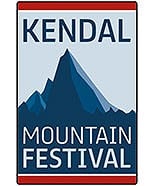
Kendal Mountain Festival 2015

Kendal Mountain Festival is by far the largest and most varied event of its type in the world - it is also the main social event for outdoor enthusiasts in the UK
'Kendal' is one of the leading festivals of its kind in the world. It is an internationally-known event, attracting film premieres from around the globe. Film makers, TV producers, adventurers, climbers and world-class lecturers gather to take part in four packed days of the very best films, speakers, books and exhibitions covering all aspects of mountain and adventure sports culture. It is also the main social event for outdoor enthusiasts in the UK and 2015 will be our 16th straight year.
- Download the Festival lecture whats's on guide (1Mb PDF)
- Book tickets on the KENDAL MOUNTAIN FESTIVAL SITE
- Grab a Film Pass here: FILM PASS
Natalie is sponsored by: Mountain Equipment, Lyon Outdoor, Scarpa, deuter and Ellis Brigham. She is also an Ambassador for charities Climbers Against Cancer and Urban Uprising.
- SKILLS: Building Fast Belays When Multipitch Sport Climbing 9 Nov, 2016
- SKILLS: Abseil Knots Explained 2 Oct, 2016
- FEATURE: Colm Shannon's Deserted DWS Heaven - Irish West Coast 7 Aug, 2016
- SKILLS: Acclimatising for the European Alps 5 Jun, 2016
- Terra Unfirma! Adventures on the Lleyn Peninsula 1 Jun, 2016
- VIDEO: Fiesta De Los Biceps 8 May, 2016
- REVIEW: Evolv Shaman 2016 18 Mar, 2016
- REVIEW: Doug Scott - Up and About 2 Feb, 2016
- ARTICLE: 12 Climbing Adventures That Won't Break The Bank 26 Jan, 2016
- DESTINATION GUIDE: 10 Routes to Climb in Chamonix in Winter 20 Jan, 2016

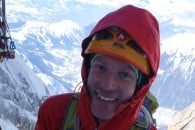




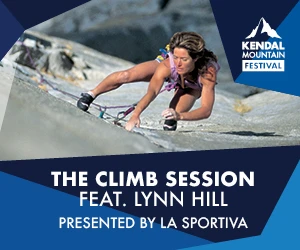
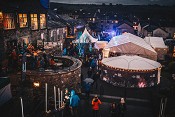
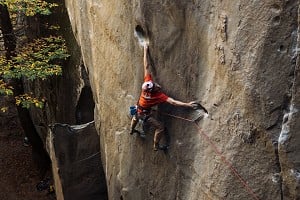
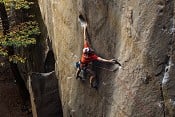
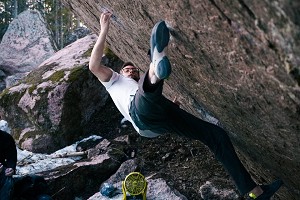
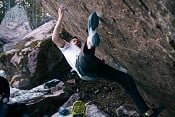








Comments